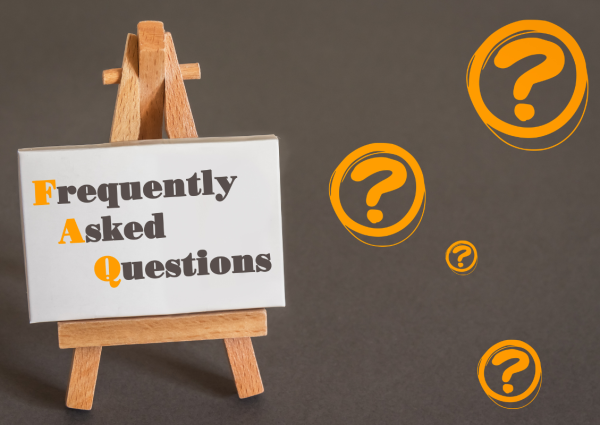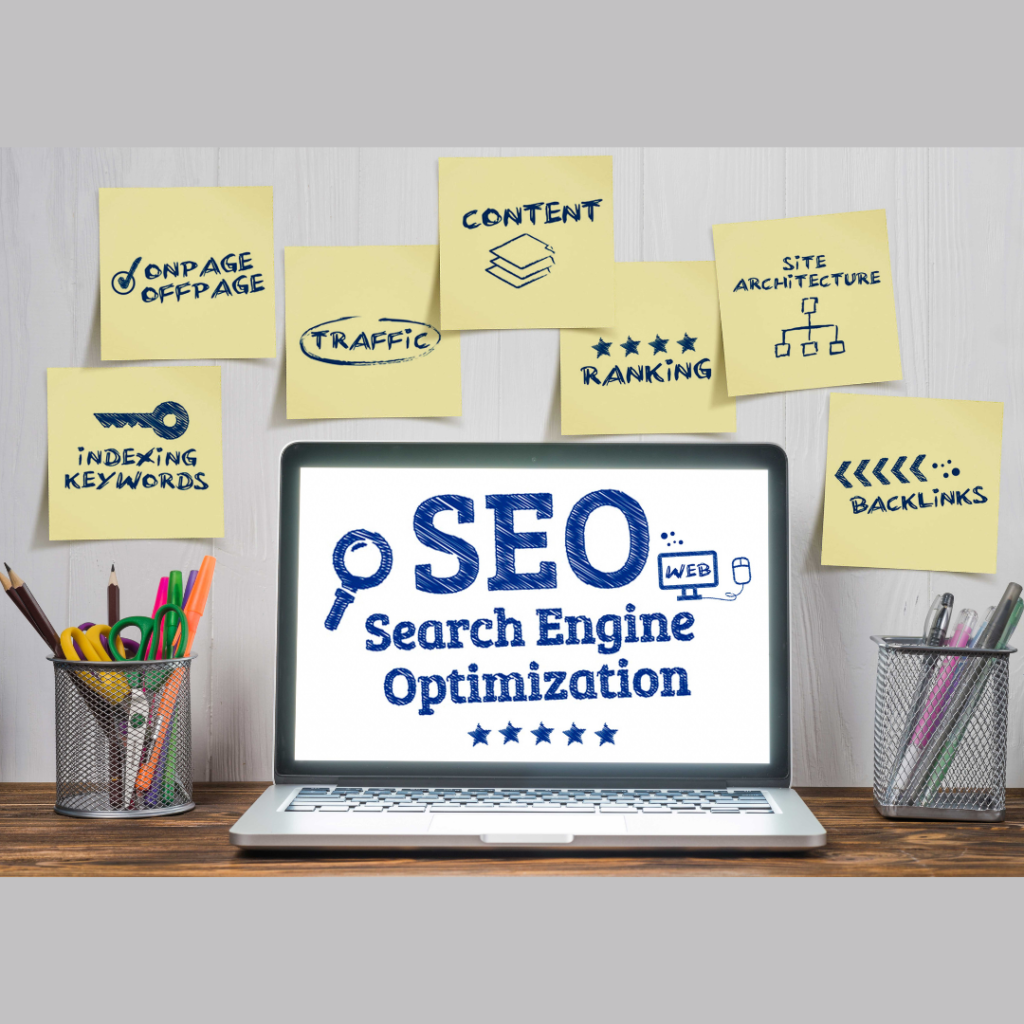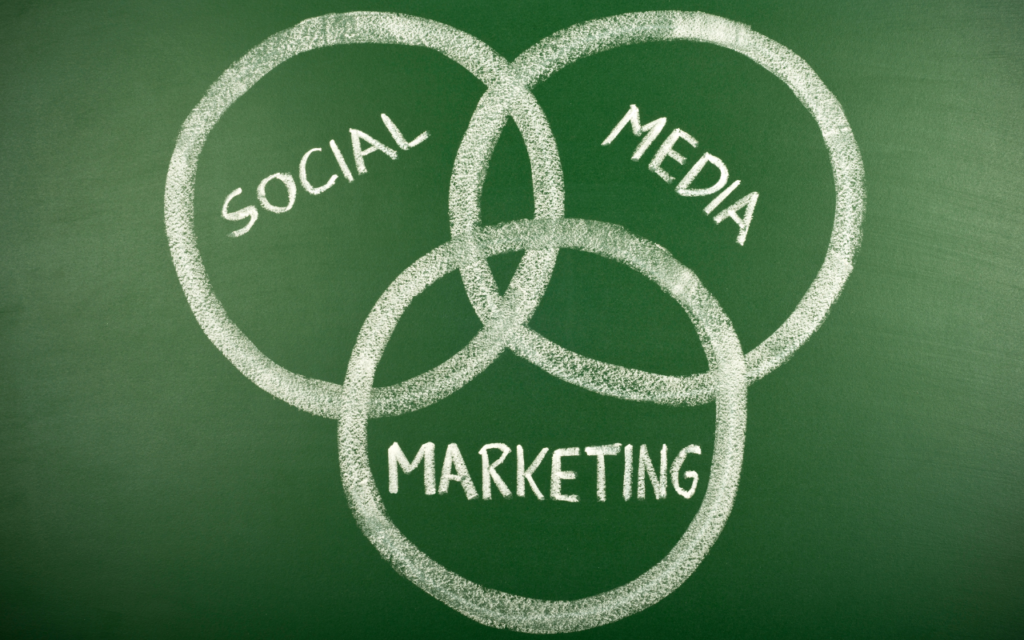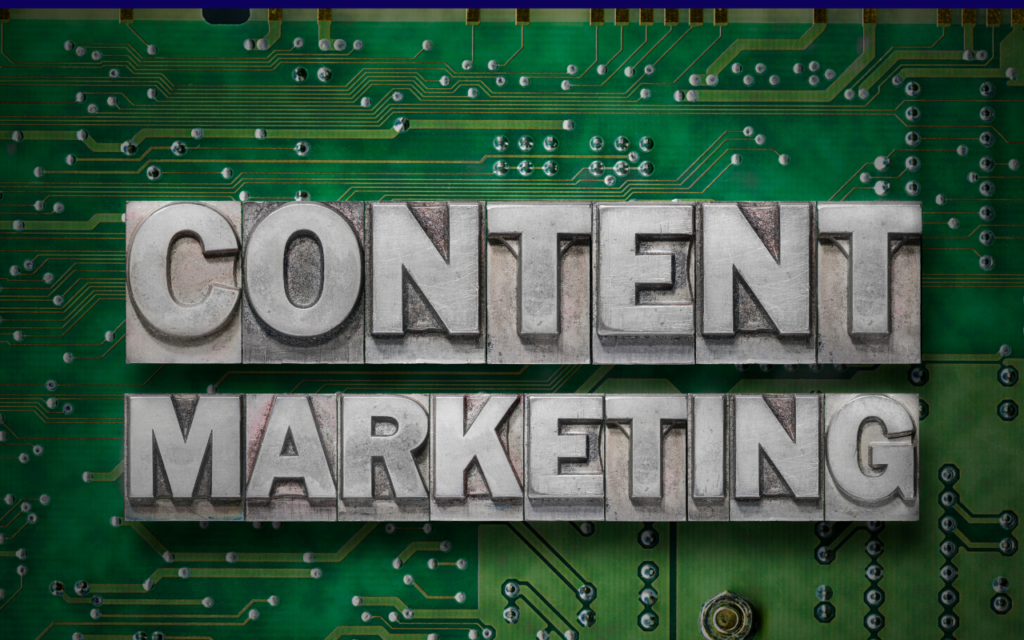Discover the world of digital marketing with our comprehensive guide. Learn about What Is Digital Marketing?, its evolution, key components, strategies, and why it’s essential for modern businesses. Explore future trends and get tips for beginners.
Table of Contents
Defining What is Digital Marketing : An Overview of the Basics
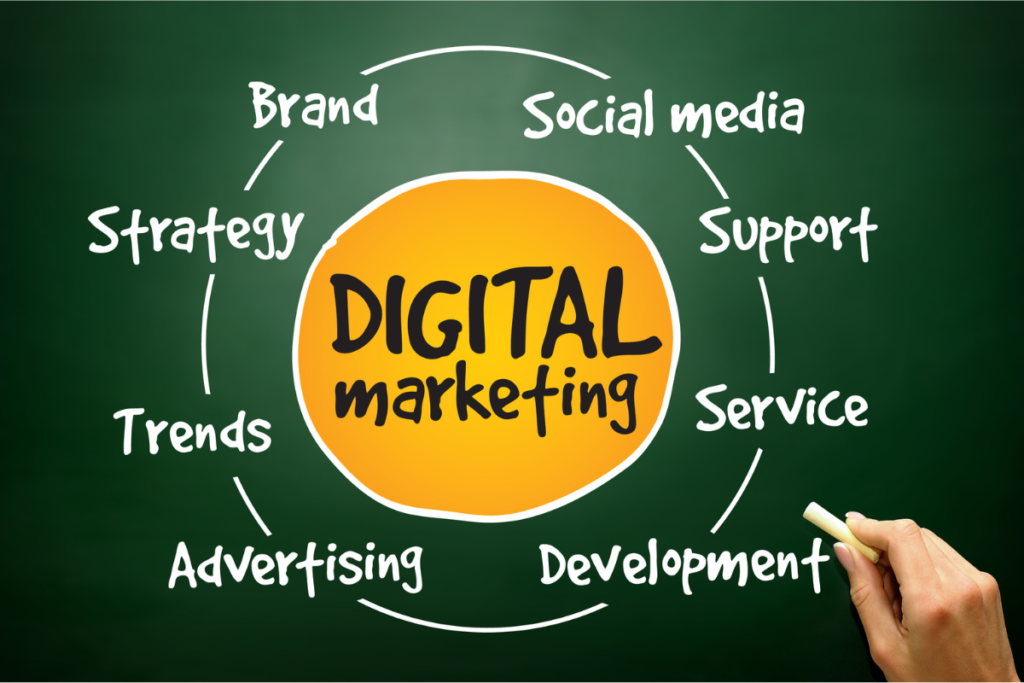
Digital marketing entails using digital channels, platforms, and technologies to promote products, services, or brands to a targeted audience. Unlike traditional marketing, which relies on print media, television, radio, and other offline methods, digital marketing leverages the internet and electronic devices to connect with consumers in a more direct and interactive way.
At its core, digital marketing encompasses various online activities such as search engine optimization (SEO), content marketing, social media marketing, email marketing, pay-per-click advertising (PPC), and more. These tactics are designed to engage potential customers, drive traffic, and convert leads into sales.
In today’s digital age, where nearly everyone is connected to the internet, digital marketing has become an essential aspect of business strategy. Whether it’s a small startup or a large corporation, businesses of all sizes use digital marketing to reach their audience, build brand awareness, and ultimately achieve their business goals.
The Evolution of Digital Marketing : From Past to Present
The Early Days of Digital Marketing :-
Digital marketing has evolved significantly since its inception. In the early 1990s, when the internet was still in its infancy, digital marketing primarily involved basic banner ads and email campaigns. Websites were simple, and marketers relied on text-based content to communicate their message.
The Rise of Search Engines and SEO :-
The late 1990s saw the rise of search engines like Google, which revolutionized the way people found information online. This shift led to the emergence of search engine optimization (SEO) as a critical component of digital marketing. Businesses began optimizing their websites to rank higher in search engine results pages (SERPs), driving organic traffic and increasing visibility.
The Social Media Revolution :-
The 2000s marked the rise of social media platforms like Facebook, Twitter, and LinkedIn. Social media marketing became a game-changer, allowing businesses to engage with their audience in real time, build relationships, and create brand advocates. The interactive nature of social media also gave rise to user-generated content and influencer marketing, further expanding the reach of digital marketing.
Mobile and Video Marketing:-
As smartphones became ubiquitous in the 2010s, mobile marketing emerged as a critical trend. Businesses began optimizing their websites and content for mobile devices, and mobile apps became a popular way to engage users. Video marketing also gained traction, with platforms like YouTube and Instagram providing businesses with new ways to connect with their audience through engaging video content.
The Current Landscape :-
Today, digital marketing is a complex and multifaceted field that encompasses a wide range of tactics and strategies. From content marketing and SEO to social media and email marketing, businesses have numerous tools at their disposal to reach their target audience. The integration of data and analytics has also become a key component, allowing marketers to track performance, optimize campaigns, and make data-driven decisions.
Key Components of Digital Marketing : Channels and Strategies
Digital marketing is a broad field that includes various channels and strategies, each serving a unique purpose. Understanding these key components is essential for creating a comprehensive digital marketing plan.
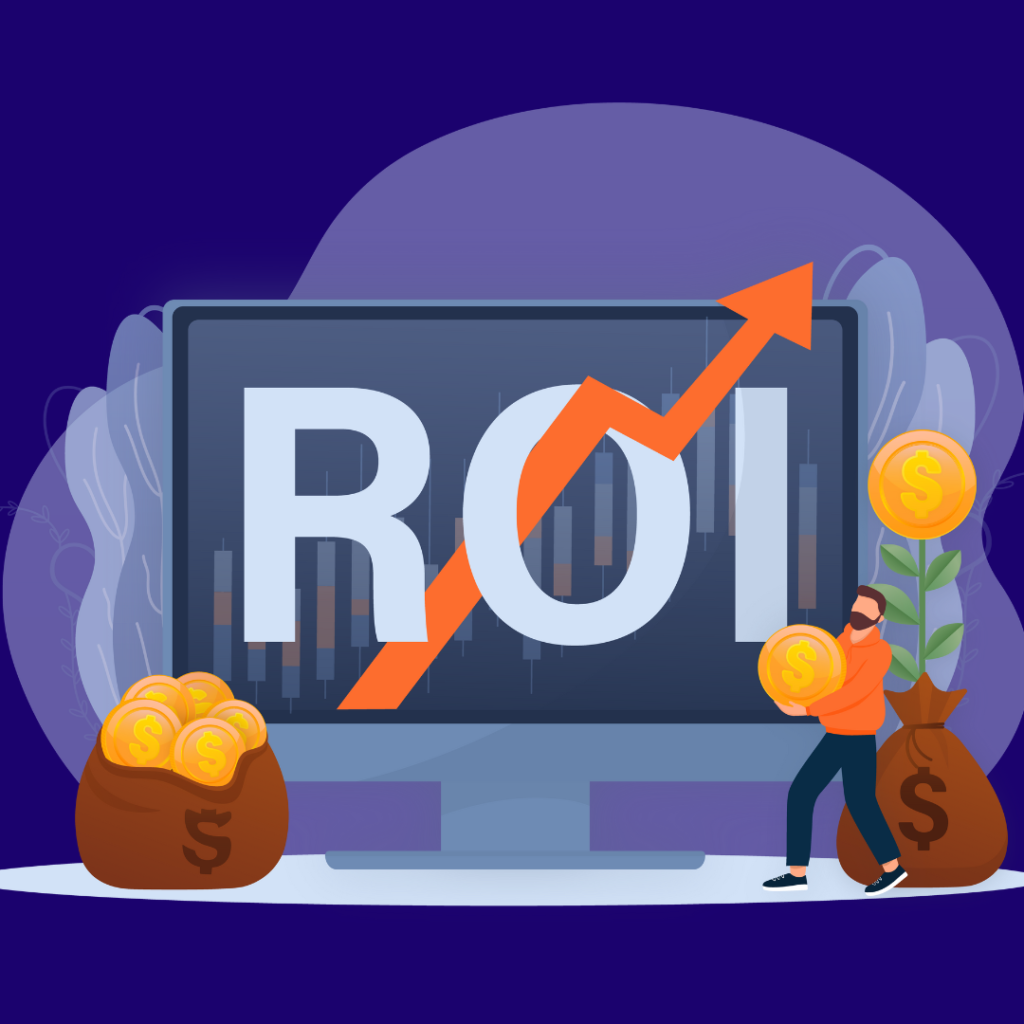
Performance Marketing :-
Performance marketing is a results-oriented approach that focuses on achieving specific actions or conversions, such as clicks, leads, or sales. This strategy leverages various digital marketing channels to drive measurable results, ensuring that businesses pay only for successful outcomes. Two of the most popular and effective platforms for performance marketing are Facebook Ads and Google Ads.
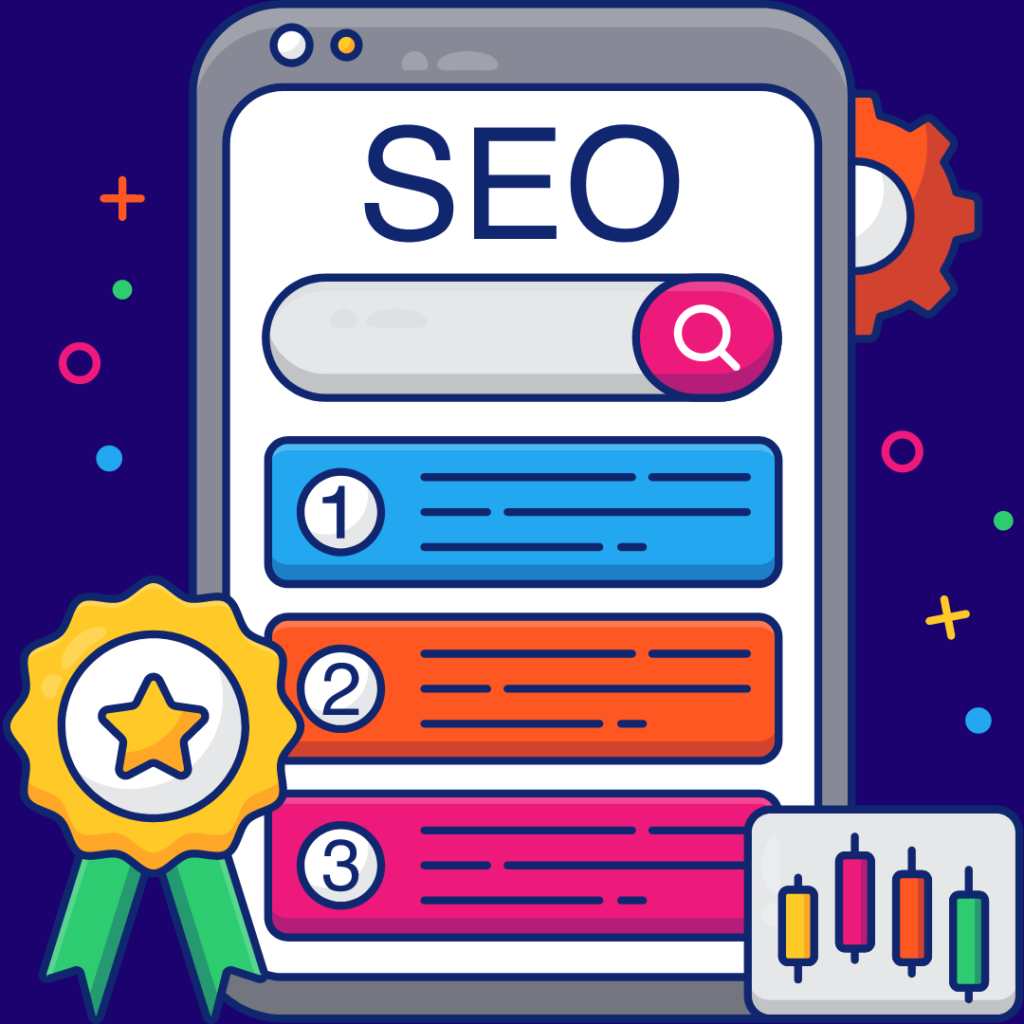
Search Engine Optimization (SEO) :-
Search Engine Optimization (SEO) involves enhancing a website’s content, structure, and design to achieve better rankings in search engine results. This process includes keyword research, on-page optimization, technical SEO practices, and creating high-quality backlinks. As a long-term strategy, SEO helps boost organic traffic and improves online visibility.
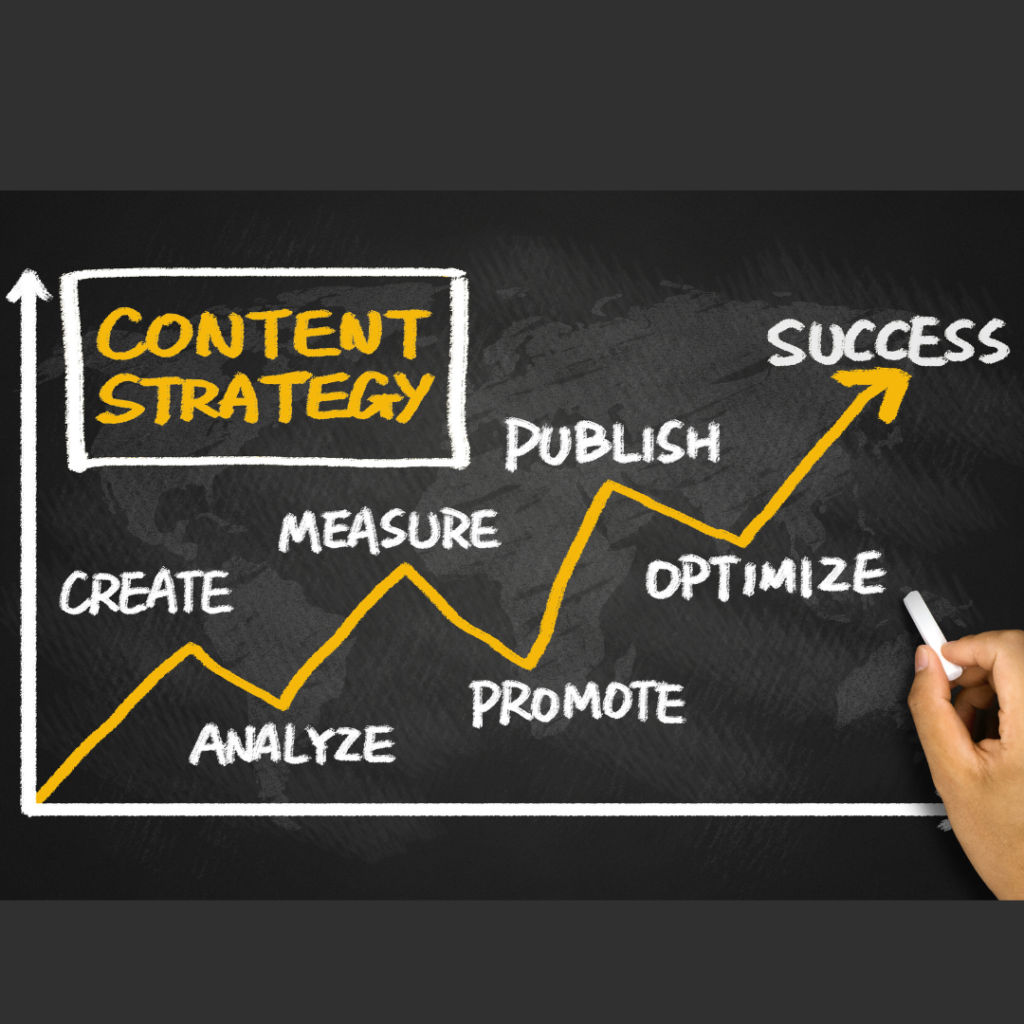
Content marketing :-
Content marketing focuses on producing and sharing valuable, relevant, and consistent content to capture and engage a specific target audience. This can take various forms, including blog posts, articles, videos, infographics, eBooks, and other content types.
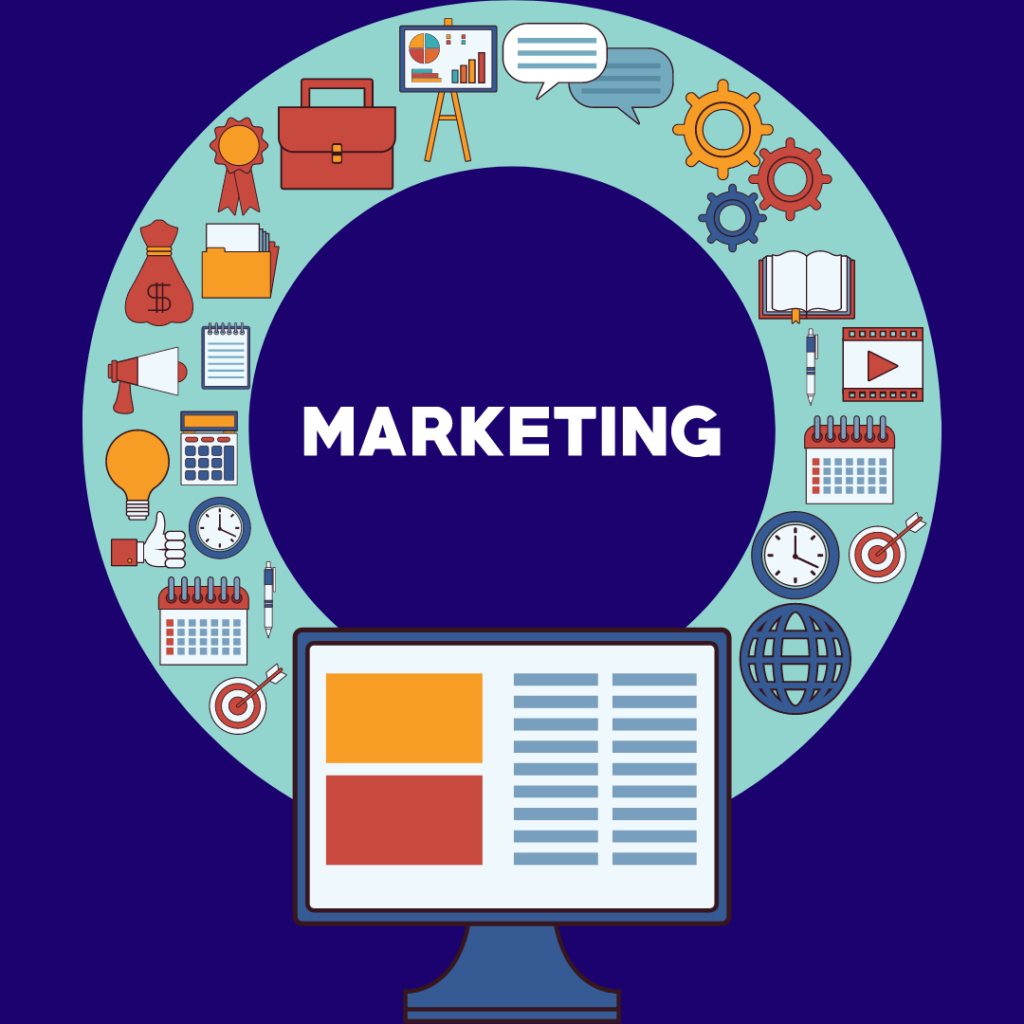
Social Media Marketing :-
Social media marketing leverages platforms like Facebook, Instagram, Twitter, LinkedIn, and others to promote products, services, and brands. This includes creating and sharing content, running ads, engaging with followers, and analyzing performance. Social media marketing is effective for building brand awareness, driving website traffic, and fostering community engagement.
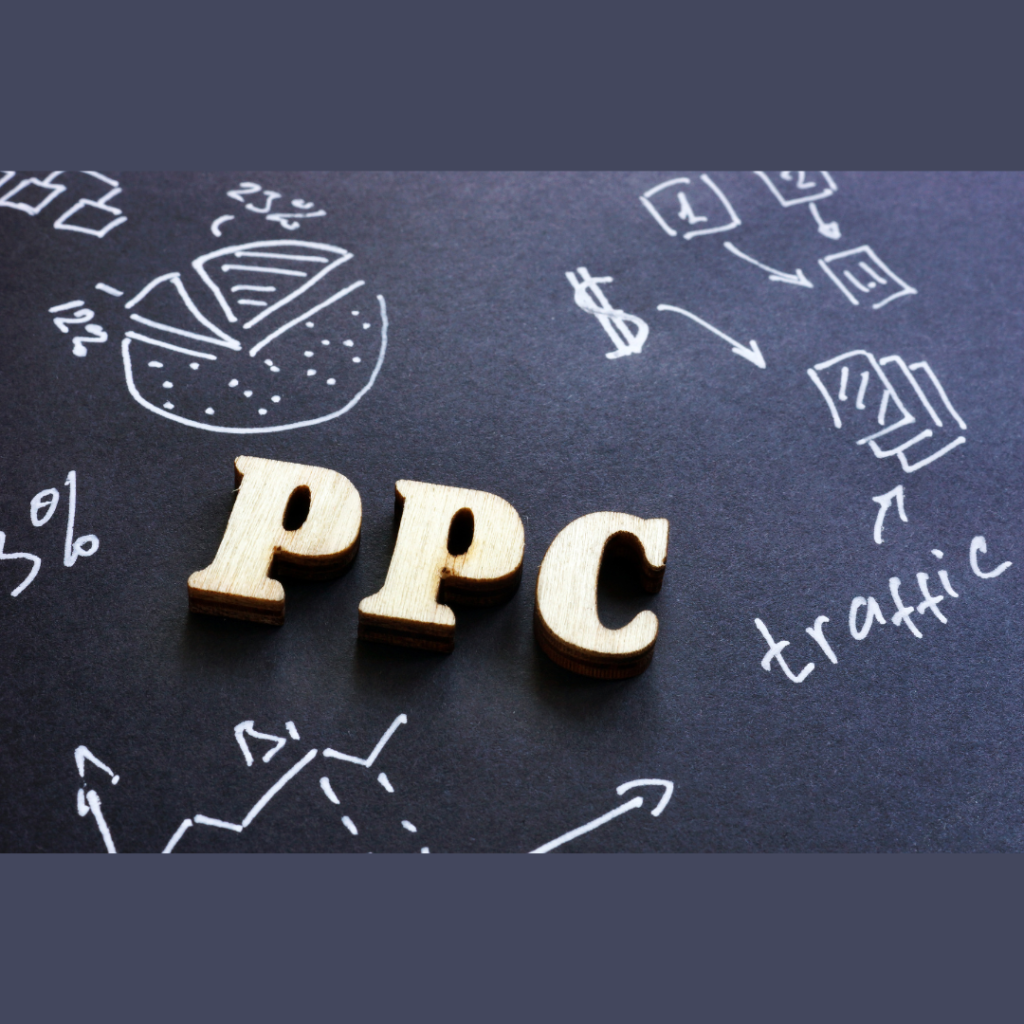
Pay-Per-Click Advertising (PPC) :-
Pay-per-click (PPC) is an online advertising model where businesses are charged each time a user clicks on their ad. Google Ads is one of the most popular PPC platforms, allowing businesses to display ads in search engine results and on partner websites. PPC campaigns can be highly targeted, providing immediate results and measurable ROI.
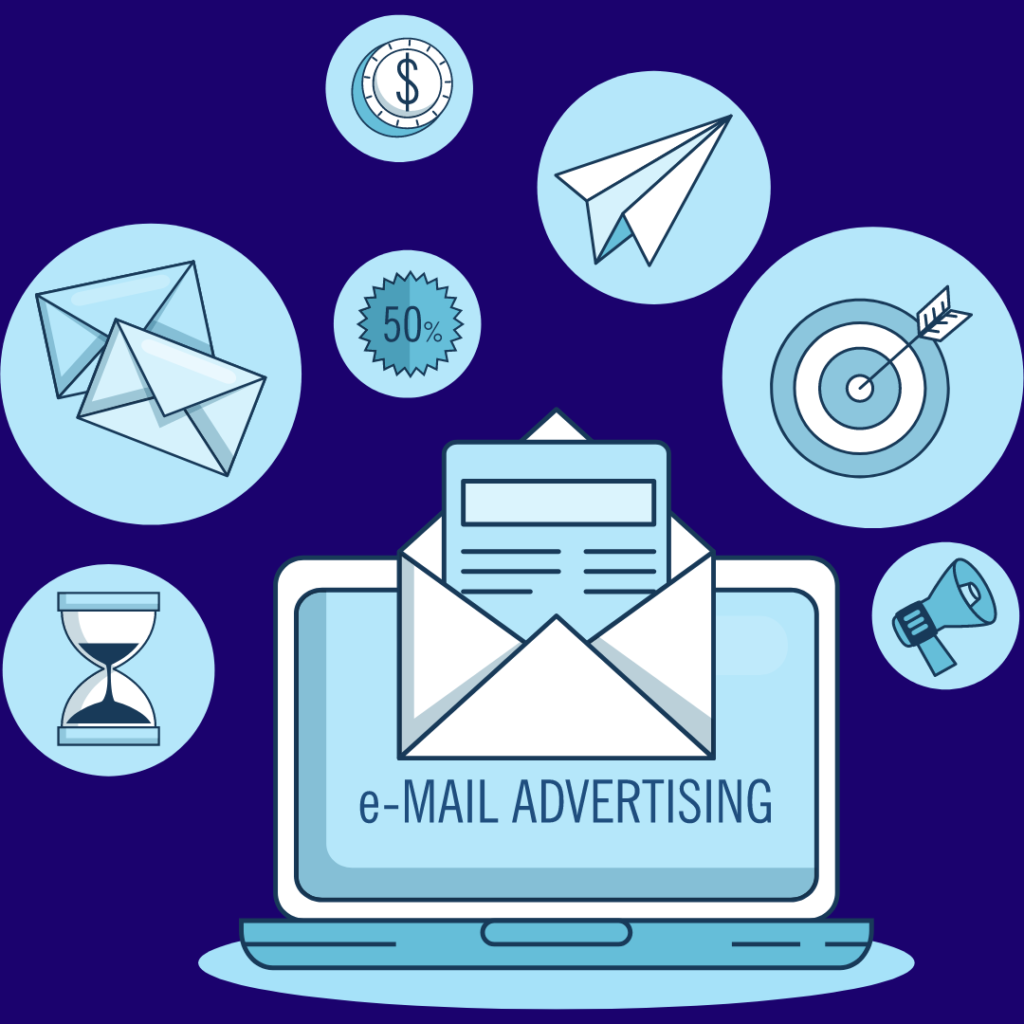
Email Marketing :-
Email marketing involves delivering targeted messages to a list of subscribers. These messages can include newsletters, promotional offers, product updates, and more. Email marketing is a cost-effective way to nurture leads, build customer relationships, and drive repeat business.

Web Development :-
Web development is a foundational component of digital marketing that involves creating and maintaining a business’s online presence through a website or web application. A well-developed website serves as the digital storefront, providing essential information about products or services, facilitating transactions, and enhancing user experience
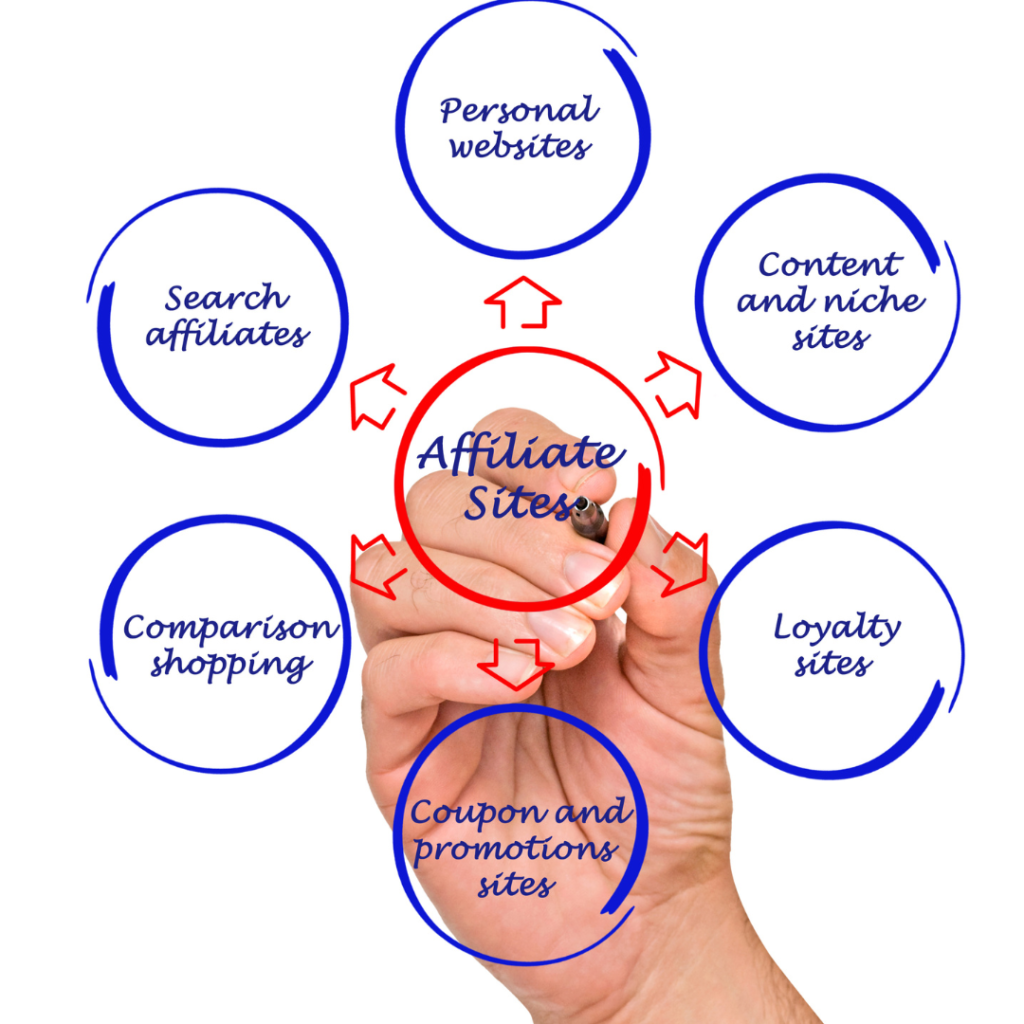
Affiliate Marketing :-
Affiliate marketing is a performance-based approach where businesses compensate affiliates for generating traffic or sales through their promotional efforts. These affiliates can be bloggers, influencers, or other content creators who promote the business’s products or services.
Influencer marketing involves partnering with individuals who have a large following on social media or other platforms to promote a brand or product. Influencers can provide authentic recommendations and endorsements, helping businesses reach a broader audience.
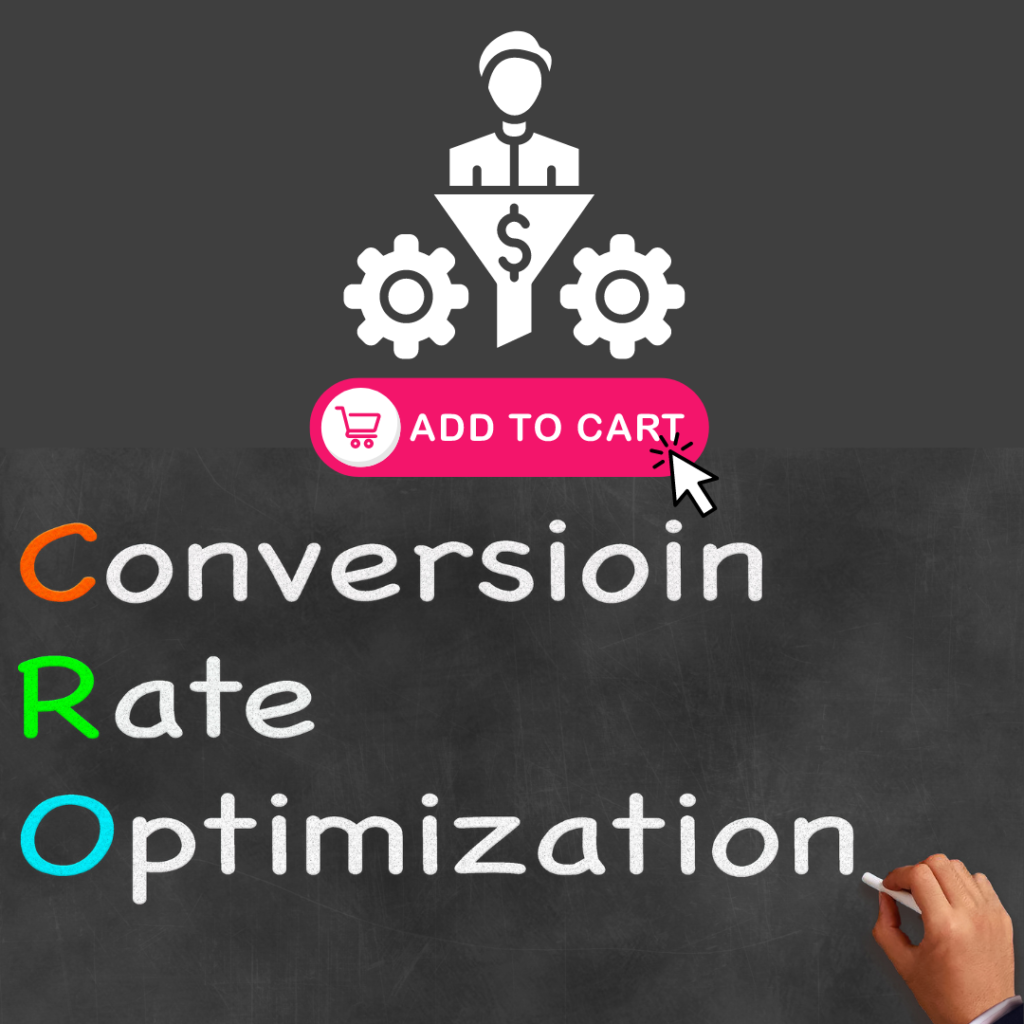
Conversion Rate Optimization (CRO ):-
Conversion Rate Optimization (CRO) involves improving a website or landing page to boost the percentage of visitors who complete a desired action, such as making a purchase or filling out a form.
Analytics plays a crucial role in digital marketing by providing insights into campaign performance, user behavior, and ROI. Tools like Google Analytics allow marketers to track key metrics, identify trends, and make informed decisions. Data-driven marketing involves using these insights to optimize strategies and achieve better results.
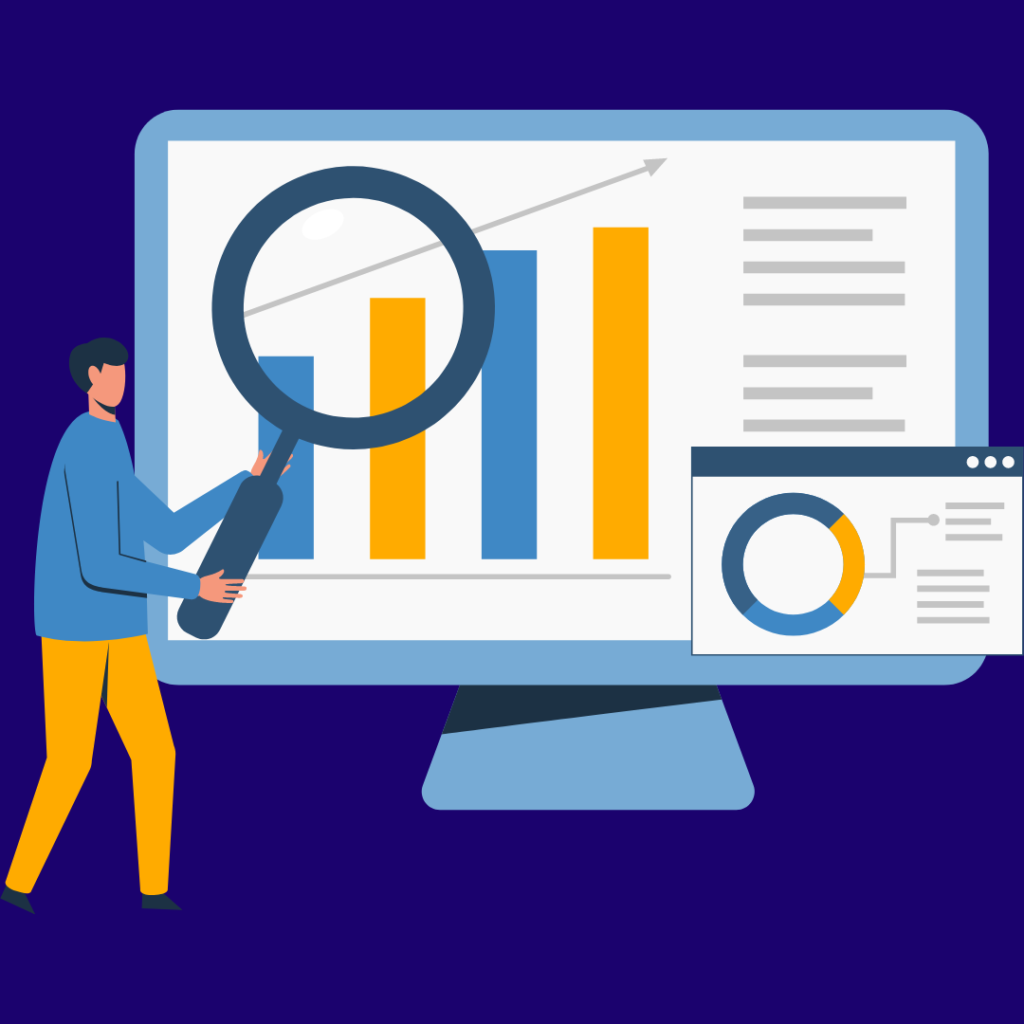
Analytics and Data-Driven Marketing
Analytics is essential in digital marketing, offering valuable insights into campaign performance, user behavior, and return on investment (ROI). Tools like Google Analytics enable marketers to monitor key metrics, spot trends, and make informed decisions. Data-driven marketing leverages these insights to refine strategies and improve outcomes
Why Digital Marketing is Essential for Modern Businesses ?
In today’s fast-paced and highly competitive business environment, digital marketing is no longer optional—it’s a necessity. Here’s why:
Global Reach
Digital marketing enables businesses to reach a global audience, overcoming geographical limitations. Whether you’re a small local business or a large multinational corporation, digital marketing provides the tools to connect with customers worldwide.
Cost-Effective
Digital marketing is often more cost-effective than traditional methods like TV or print ads. With a smaller budget, businesses can achieve significant results by leveraging tactics like SEO, social media marketing, and email campaigns.
Targeted Marketing
A major advantage of digital marketing is its ability to target specific audiences effectively. Through data and analytics, businesses can segment their audience based on demographics, interests, behavior, and more. This approach This approach focuses marketing efforts on those most likely to convert.
Measurable Results
Digital marketing offers real-time data and analytics, enabling businesses to assess the effectiveness of their campaigns. This enables continuous optimization and ensures that resources are allocated to strategies that deliver the best ROI.
Improved Customer Engagement
Digital marketing provides numerous channels for businesses to engage with their customers, from social media interactions to personalized email campaigns. This helps build stronger relationships, increase customer loyalty, and drive repeat business.
Adaptability and Flexibility
Future Trends in Digital Marketing : What’s Coming Next
As digital marketing continues to evolve, staying ahead of emerging trends is crucial for maintaining a competitive edge. Here are a few trends to watch out for in the near future :
Artificial Intelligence (AI) and Machine Learning
AI and machine learning are transforming digital marketing by automating tasks, improving targeting, and providing deeper insights. From chatbots and personalized content to predictive analytics, AI will continue to play a significant role in the future of digital marketing.
Voice Search Optimization
With the growing use of voice-activated devices like smart speakers, optimizing for voice search is becoming increasingly important. Voice search queries are typically longer and more conversational, requiring a tailored approach to SEO.
Video Marketing
Video content continues to dominate online platforms, with its popularity expected to keep growing. Businesses will need to invest in video marketing, creating engaging content for platforms like YouTube, Instagram, and TikTok.
Augmented Reality (AR) and Virtual Reality (VR)
AR and VR are becoming more accessible and are being used in digital marketing to create immersive experiences. From virtual try-ons to interactive ads, these technologies offer new ways to engage customers.
Personalization at Scale
As consumers expect more personalized experiences, businesses will need to leverage data and technology to deliver personalized content, offers, and interactions at scale. This will involve advanced segmentation, predictive analytics, and dynamic content.
Increased Focus on Privacy and Data Security
With growing concerns about data privacy, businesses will need to prioritize transparency, compliance, and data security. This will involve adopting privacy-first strategies and building trust with customers.
Sustainability and Ethical Marketing
Traditional Marketing vs Digital Marketing: What’s the Difference?
While both traditional and digital marketing aim to promote products and services, they differ significantly in terms of methods, reach, and impact.
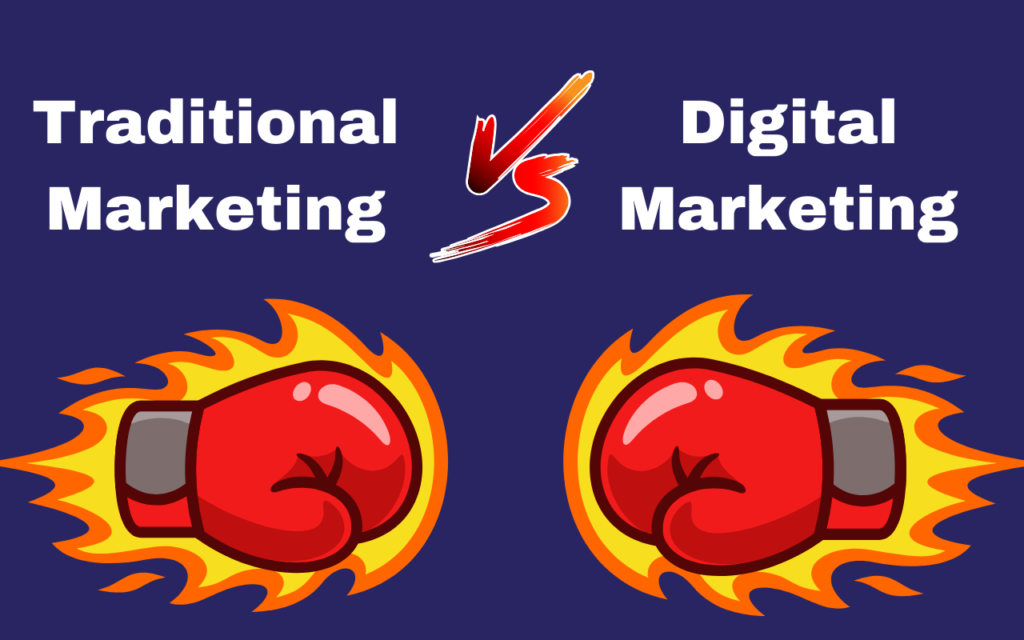
Traditional Marketing
Traditional marketing includes offline methods like print ads, television commercials, radio spots, billboards, and direct mail. These methods have been used for decades and are effective at reaching a wide audience. However, traditional marketing often comes with higher costs and limited targeting capabilities.
Digital Marketing
Digital marketing, on the other hand, leverages online channels and technologies to reach a more targeted audience. It includes tactics like SEO, social media marketing, PPC, and email campaigns. Digital marketing is often more cost-effective and provides measurable results, making it easier to optimize campaigns for better performance.
Key Differences
Reach and Targeting :
Traditional marketing often casts a wide net, reaching a broad audience, while digital marketing allows for precise targeting based on demographics, behavior, and interests.
Cost :
Traditional marketing methods can be costly, particularly for small businesses. Digital marketing provides a more cost-effective alternative with the potential for a high return on investment (ROI)
Measurability :
Traditional marketing is difficult to measure accurately, whereas digital marketing provides detailed analytics and data, allowing for real-time tracking and optimization.
Engagement :
Digital marketing provides more opportunities for direct engagement with customers through social media, email, and other online channels, fostering stronger relationships.
How Digital Marketing Drives Business Growth ?
Digital marketing plays a crucial role in driving business growth by increasing brand awareness, generating leads, and converting those leads into sales. Here’s how:

Increased Brand Visibility
Through SEO, content marketing, and social media, digital marketing helps businesses increase their online presence and visibility. This ensures that potential customers can find the brand easily, whether they’re searching for a specific product or browsing online.
Lead Generation
Digital marketing strategies like PPC, content marketing, and email campaigns are highly effective for generating leads. By targeting specific audience segments and offering valuable content, businesses can attract potential customers and guide them through the sales funnel.
Higher Conversion Rates
Conversion Rate Optimization (CRO) aims to enhance the effectiveness of a website or landing page, resulting in higher conversion rates. By analyzing user behavior and making data-driven changes, businesses can increase the percentage of visitors who take a desired action, such as making a purchase.
Enhanced Customer Loyalty
Digital marketing allows businesses to engage with customers regularly through social media, email marketing, and personalized content. This ongoing engagement helps build customer loyalty, leading to repeat business and long-term relationships.
Scalability
Getting Started with Digital Marketing : Tips for Beginners
If you’re new to digital marketing, getting started can be overwhelming. Here are some tips to help you navigate the digital landscape and build a successful marketing strategy:

Define Your Goals
Before starting with digital marketing, it’s crucial to set clear goals. What do you aim to achieve? Whether it’s boosting brand awareness, generating leads, or increasing sales, having defined objectives will shape your strategy and help you track your success.
Understand Your Audience
Understanding your audience is essential for crafting effective digital marketing campaigns. Conduct market research to learn about your target audience’s demographics, interests, and behaviors. Use this information to craft detailed buyer personas that accurately represent your ideal customers.
Start with the Basics
If you’re just starting with digital marketing, focus on the basics. Build a strong online presence with a well-crafted website and optimized content. Invest in SEO to enhance your search engine visibility, and leverage social media to actively engage with your audience.
Experiment with Different Channels
Digital marketing offers a variety of channels, from social media and email to PPC and content marketing. Try out various channels to determine which ones work best for your business. Keep track of your results and adjust your strategy based on what’s effective and what needs improvement.
Invest in Learning
Digital marketing is always changing, so it’s crucial to keep up with the latest trends and best practices. Invest in learning through online courses, webinars, and industry blogs. Consider obtaining certifications in areas like SEO, Google Ads, and social media marketing.
Use Data to Drive Decisions
Data is your best friend in digital marketing. Use analytics tools to track your performance, understand your audience, and optimize your campaigns. Make data-driven decisions to improve your ROI and achieve better results.
Don’t Be Afraid to Fail
Digital marketing involves experimentation, and not every campaign will be successful. Don’t be afraid to fail—use it as a learning opportunity to improve your strategy. Test different, learn from your mistakes, and keep refining your efforts.
Build a Strong Brand
Your brand represents your identity, so it’s essential to maintain a strong and consistent presence across all digital channels. This includes elements such as your logo, color scheme, tone of voice, and messaging. A strong brand helps build trust and loyalty with your audience.
Focus on Quality Over Quantity
In digital marketing, quality always trumps quantity. Whether it’s content creation, social media posts, or email campaigns, focus on delivering high-quality, valuable content that resonates with your audience.
Be Patient
The Role of Data and Analytics in Digital Marketing
Data and analytics are at the heart of digital marketing, providing the insights needed to optimize strategies and achieve better results. Here’s how data and analytics contribute to digital marketing success:
Tracking Campaign Performance :- Analytics tools like Google Analytics, Facebook Insights, and email marketing platforms provide detailed data on campaign performance. Marketers can track metrics such as traffic, engagement, conversions, and ROI, allowing them to evaluate the success of their campaigns.
Understanding User Behavior :-Data analytics helps businesses understand how users interact with their website, content, and ads. By analyzing user behavior, such as time spent on a page, bounce rates, and click-through rates, marketers can identify areas for improvement and optimize the user experience.
Personalization and Targeting :- Data allows for highly personalized marketing, where businesses can tailor content and offers to specific segments of their audience. This enhances the relevance of marketing efforts, leading to increased engagement and higher conversion rates.
Predictive Analytics :- Predictive analytics leverages historical data to anticipate future trends and behaviors. In digital marketing, predictive analytics can help identify potential customers, optimize ad spend, and anticipate market changes, enabling businesses to stay ahead of the competition.
Continuous Optimization :- Data-driven marketing is an ongoing process of testing, analyzing, and optimizing. By continually monitoring performance and making data-driven decisions, businesses can improve their marketing strategies over time, leading to better results and higher ROI.
Common Digital Marketing Challenges and How to Overcome Them
Despite its many advantages, digital marketing presents various challenges. Here are some common issues and strategies for overcoming them:
Keeping Up with Rapidly Changing Trends
The digital landscape is continually evolving, with new technologies, platforms, and trends emerging frequently. Staying updated can be overwhelming, but it’s essential for maintaining a competitive edge.
Solution :-
Invest in continuous learning and professional development. Subscribe to industry blogs, attend webinars, and participate in online courses to stay informed about the latest trends and best practices.
Measuring ROI
While digital marketing provides detailed analytics, measuring ROI can still be challenging, especially for multi-channel campaigns. Determining which channels and strategies are delivering the best results requires a deep understanding of data.
Solution :-
Use advanced analytics tools and attribution models to track the performance of each channel. Regularly review your data and adjust your strategies based on what’s effective and what’s not.
Creating Engaging Content
With the vast amount of content available online, it can be challenging to stand out and capture the audience’s attention. To succeed, it’s essential to create engaging, high-quality content.
Solution :-
Focus on understanding your audience’s needs and preferences. Conduct audience research, create buyer personas, and develop content that addresses their pain points and interests. Experiment with different content formats, such as videos, infographics, and interactive content, to keep your audience engaged.
Balancing Multiple Channels
Managing multiple digital marketing channels, such as social media, email, and PPC, can be time-consuming and complex. Ensuring consistency across channels while optimizing each one for performance is a common challenge.
Solution :-
Solution: Create a cohesive digital marketing strategy that aligns with your business goals. Use marketing automation tools to streamline tasks and ensure consistency across channels. Regularly review and adjust your strategy to enhance performance.
Maintaining Data Privacy and Compliance
With increasing concerns about data privacy and regulations like GDPR, ensuring compliance while using data for marketing purposes is a critical challenge.
Solution :-
Stay informed about data privacy laws and regulations in your region. Implement best practices for data collection, storage, and usage. Ensure that your marketing practices are transparent and that you have obtained the necessary consents from your audience.
Frequently Asked Questions
Digital marketing is the practice of leveraging digital channels and technologies to advertise products, services, or brands. It includes tactics like SEO, content marketing, social media marketing, PPC, and email campaigns.
Digital marketing leverages online channels to reach a targeted audience, offering more precise targeting, measurable results, and cost-effective strategies compared to traditional marketing methods like print ads and TV commercials.
Digital marketing is essential for businesses because it provides global reach, cost-effective strategies, targeted marketing, measurable results, and improved customer engagement
Key components of digital marketing include SEO, content marketing, social media marketing, PPC, email marketing, affiliate marketing, influencer marketing, CRO, and analytics.
To get started with digital marketing, define your goals, understand your audience, start with the basics like building a website and optimizing content, experiment with different channels, and use data to drive decisions.
